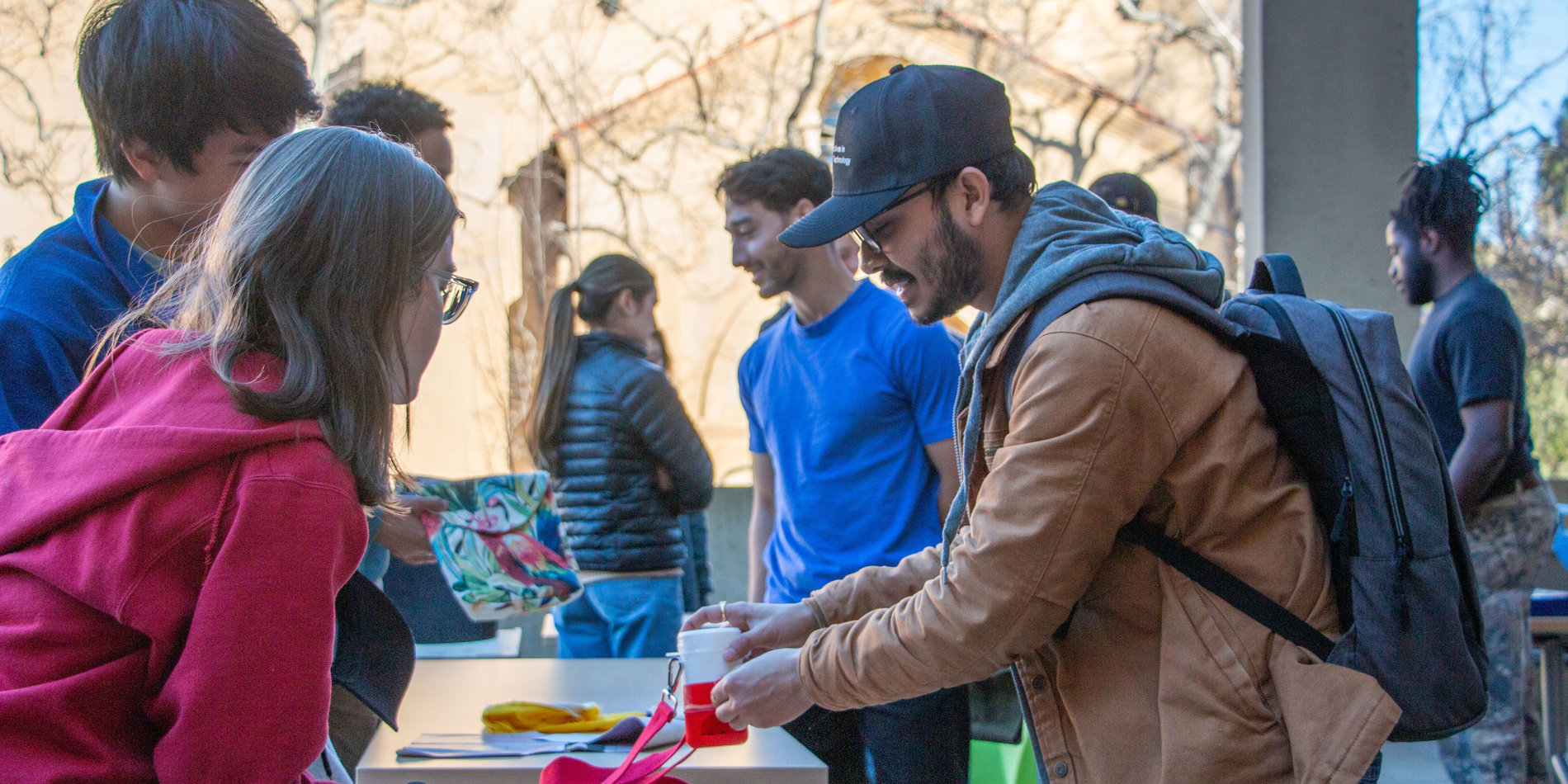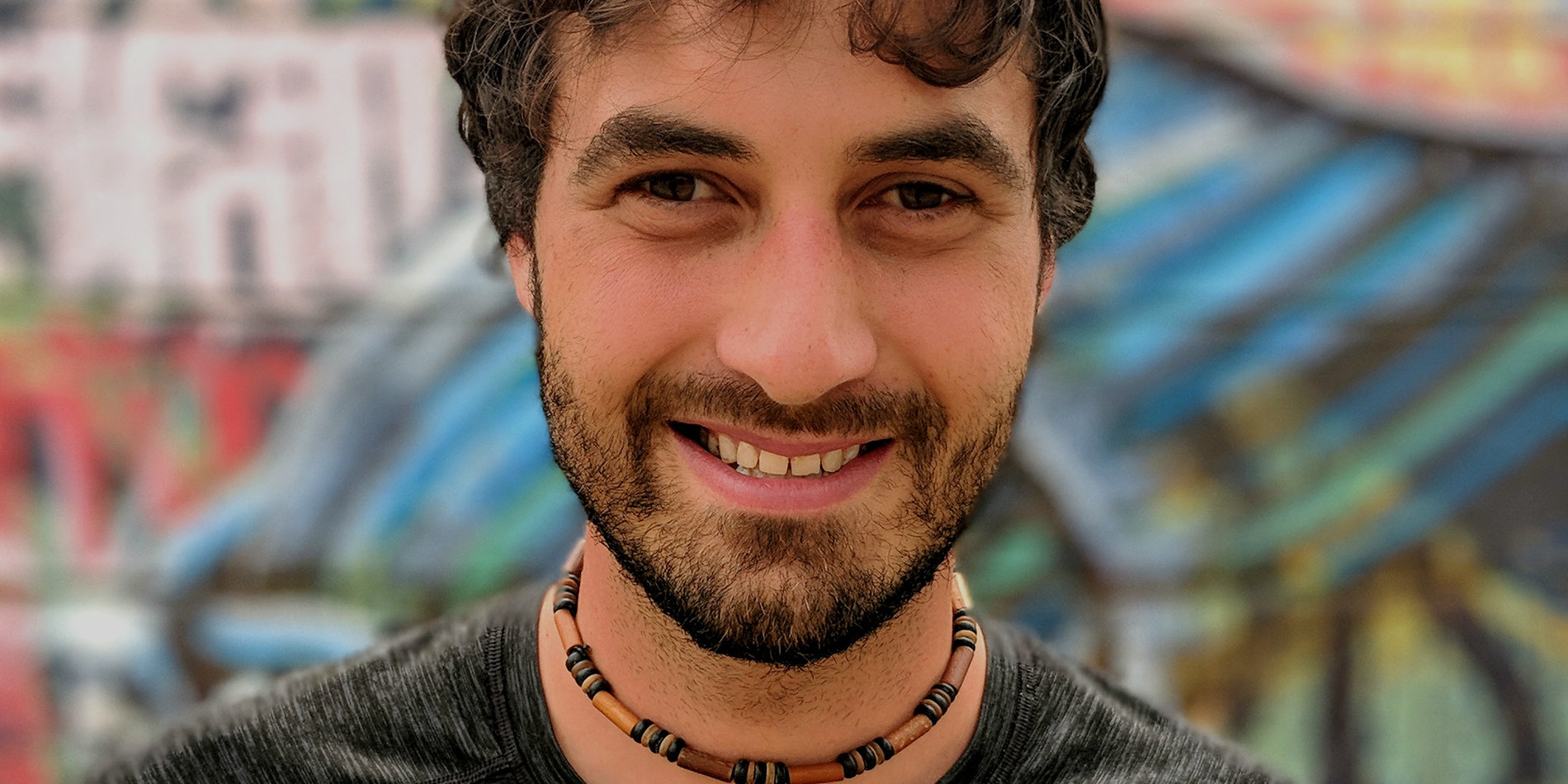Community Care

Contributing to community efforts can empower you and help you empower others. Discover ways to stay informed, strengthen community, contribute to causes you care about, and support essential services while following local and national public health orders and social distancing guidelines. When engaging in service, you should also consider how you can contribute to the efforts already underway in your community as well as how your work aligns with the Principles of Ethical and Effective Service.
NOTE: The most important contribution you can make to your community right now is to abide by public health orders and social distancing guidelines to protect yourself and others around you. Engage with service in ways that are consistent with current guidance, and a good fit for you given your individual circumstances.
Contribute to causes you care about through remote action

- Help people get vaccinated. The ability to get a vaccine is dependent on internet connection and typing speed, which is not ideal for seniors and those without reliable internet access. Call neighbors, family and friends and schedule appointments for them. Work alone or in a group.
- Discover a virtual volunteering opportunity through Points of Light, Hands on Bay Area, VolunteerMatch or Catchafire.
- Brighten days of those in need of cheer through letters, short calls and/or videos with Brighten a Day.
- Browse Oparkash’s network and apply for online volunteering positions with grassroots social impact organizations in over 40 countries around the world.
- Visit GivePulse for virtual and remote volunteer guidelines and suggestions.
- Volunteer virtually with the Smithsonian.
- Volunteer virtually with the United Nations.
- Put your translation skills to use with Translators without Borders.
- Assist Local Schools as teachers work harder than ever to develop and provide virtual curricula. Contact a local elementary school to help with a multimedia project, convert paper lessons into a digital lesson, work on a web project, provide IT support, or even create a virtual mini lesson that can help teachers out.
- Tutor elementary and middle school students remotely with Step Up Tutors.
- Explore ways to support youth education through volunteering, learning more about youth development, donating, or sharing resources.
- Create marketing or social media content for a nonprofit. Reach out to organizations that work on issues you care about to find out if you can help them fill this need.
- Use your website-building skills or other specialized skills to help Supporting Resilient Communities, Inc. organize disaster relief efforts worldwide. Indicate your interest.
- Sew hospital face masks as part of #MasksNow, a national effort to bring sewists, callers, distributors and hospital facilities together to provide much-needed masks. The CDC has mask-making instructions and Community Health has an easy-to-follow video for sewing masks.
- Donate to a local shelter – crochet or knit a blanket; or sort through old clothes, books, and more to find items to donate and organize your living space at the same time.
- Post about causes you care about on social media. The most effective posts contain a clear call to action that friends and family can follow while social distancing.
- Share your service story on the Cardinal Service Stories blog or nominate a friend to share their story.
- Create a video, write poetry, record a podcast, or write an essay about an issue you care about to share with others.
- Educate yourself about global hunger through End Hunger in 30.
- Encourage your Senators to pass The Natural Disaster and Emergency Ballot Act (NDEBA) to ensure federal elections can take place safely during national emergencies.
- Sign online petitions for causes you care about.
- Collect paper bags and Boxes for a food distribution program. Many have great need right now.
Support essential efforts in your local community
Please note: The following opportunities require you to leave your residence to support essential services. If you are an at-risk individual, live with at-risk individuals, or show symptoms of illness, do not take part in these activities. Everyone, regardless of risk level, must check public health orders and any applicable university directives to ensure compliance before engaging in these opportunities, and should take the utmost precaution to follow social distancing guidelines during the opportunity. As circumstances are changing, you should check an organization’s website as to their current service needs and how they may change given the current climate.
- Volunteer at a local food bank or Meals on Wheels. Food banks are “essential services” under many shelter-in-place orders, and are in great need of volunteers during this time. Register in advance on the organization’s website to help out.
- Donate blood. Blood banks are “essential services” under many shelter-in-place orders, and are in great need of donations. Find opportunities to volunteer and give blood through the Red Cross and other local organizations.
- Pick up groceries and other necessities for people in need. Find out (worldwide) how to help through Shopping Angels.
- Create hygiene kits and masks and drop off at a shelter for people experiencing homelessness to help them stay healthy.
- Make Personal Protective Equipment (PPE). The PPE Playbook is an authoritative resource for DIYers who want to help to protect health care workers.
Strengthen community remotely
- Call, FaceTime, or text isolated people, particularly elders or at-risk individuals.
- Write letters of support to encourage community members, including senior citizens, veterans, Stanford employees on campus to provide essential services, hospitalized children, and incarcerated individuals.
- Foster intergenerational companionship by performing virtual concerts, making phone calls, sending cards and crafts, or joining a pen pal program with Virtual Companions.
- Connect virtually with senior citizens who have limited English proficiency with Virtual Park Bench or call isolated seniors.
- Express gratitude and support to health care workers, socially-isolated individuals, educators, and others through Gratitude Campaign Action Items, compiled by Cardinal Service peer advisor Adam Nayak, '22.
- Work with others virtually to complete a self-designed service project and build community. See an example of an independent service project initiated by Stanford students.
Bay Area-specific local opportunities
- Sign up to pack or distribute meals with Second Harvest of Silicon Valley, Peninsula Volunteers, or your local Meals on Wheels chapter.
- Find ideas for serving on the Californians for All website, and share your service on social media using #CaliforniansForAll.
- Help teachers in the Ravenswood City School District connect with families. Spanish/English bilingual adults can help facilitate conference calls.
- Join Santa Clara County Helping Hands which matches individuals at high risk for COVID-19 to low-risk local volunteers who can help deliver groceries and prescriptions and have virtual check-ins.
- Volunteer to help distribute diapers to local families with Baby Basics of the Peninsula.
- Collect clean paper bags and masks and deliver them to Ecumenical Hunger Program, East Palo Alto, for their food distribution efforts.
- If you are not medically at risk or living with someone who is, help with food preparation and/or transport. Contact volunteering@samaritanhousesanmateo.org.
Take action for racial justice
- Take action against anti-Blackness with ideas from this External Action Guide, compiled by Cardinal Service peer advisor Adam Nayak, '22.
- Learn more about anti-racism resources and how to take action on the Student Affairs Black Lives Matter website.
- Explore this list of actions and resources in response to police brutality gathered by Stanford students and staff.
- Apply for Office of Student Engagement funds to support your registered student organizations' efforts in response to racism and injustice toward the Black community.
- Contribute ideas to Stanford Women in Politics' Just Policing Scorecard Project to highlight congressional candidates committed to police reform.
- Make a Cardinal Commitment with organizations advancing justice and equity, such as JusticeCorps, Stanford Housing Justice, and Stanford Immigrant and Refugee Empowerment Network.
Stay informed
- Subscribe to the Cardinal Service digest to receive good-news stories and fresh remote service ideas weekly. New issues will resume in the fall.
- Learn how to be a good neighbor during a public health emergency.
Do you have other community public service suggestions to share? Contact Peggy Propp.


